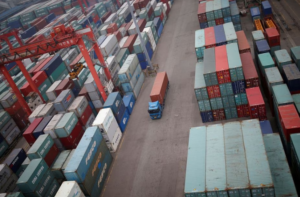On Wednesday, Malaysia’s Prime Minister, Anwar Ibrahim, expressed that transitioning to a dual 5G network would facilitate more meaningful involvement from China’s Huawei.
This move aims to strike a technological balance by combining both Western and Eastern technologies. Despite Western nations’ concerns and Malaysia’s initial plan, the government announced in May that it would permit the operation of a second 5G network starting next year to end the monopoly maintained by a single state-run network.
In May, The Financial Times reported that both the European Union and the United States had cautioned Malaysia about potential threats to national security and foreign investments in light of Huawei’s attempts to secure a role in the country’s telecommunications infrastructure.
During his statement on Wednesday, Anwar Ibrahim recognized the apprehensions raised by certain nations regarding the “security and capacity” of Chinese technology. However, he emphasized that the choice to authorize a second 5G network was driven by Malaysia’s desire to leverage diverse technological options for its benefit.
“After extensive discussion, we made the decision to allow for a dual network, and thus the decision for more effective participation by Huawei. We in Malaysia, and I believe rightly, decided that while we get the best from the West, we also should benefit the best from the East,” Ibrahim in a statement at an event organized by Huawei in Kuala Lumpur.
In 2021, Malaysia introduced a proposal for a government-owned agency called Digital Nasional Berhad (DNB) to possess the entire 5G spectrum. Under this plan, different carriers would utilize this infrastructure to offer mobile services. However, the initiative faced industry scrutiny, particularly regarding pricing and competition.
DNB collaborated with the Swedish telecommunications giant Ericsson to deploy Malaysia’s 5G network.
The impact of Malaysia’s second network plan on DNB’s agreement with Ericsson and other mobile operators remains uncertain.
(Source: Rozanna Latiff | Martin Petty | Reuters)









